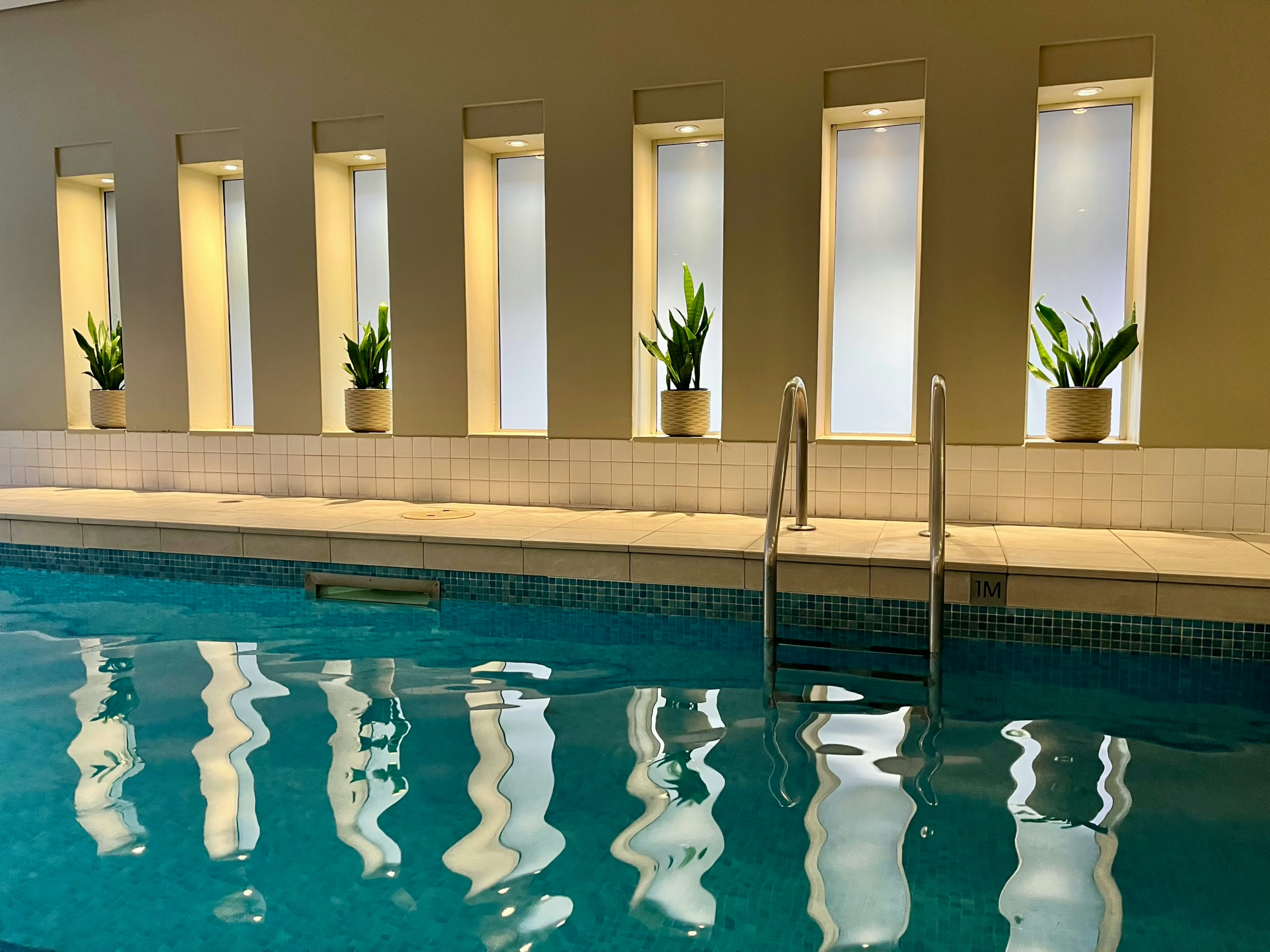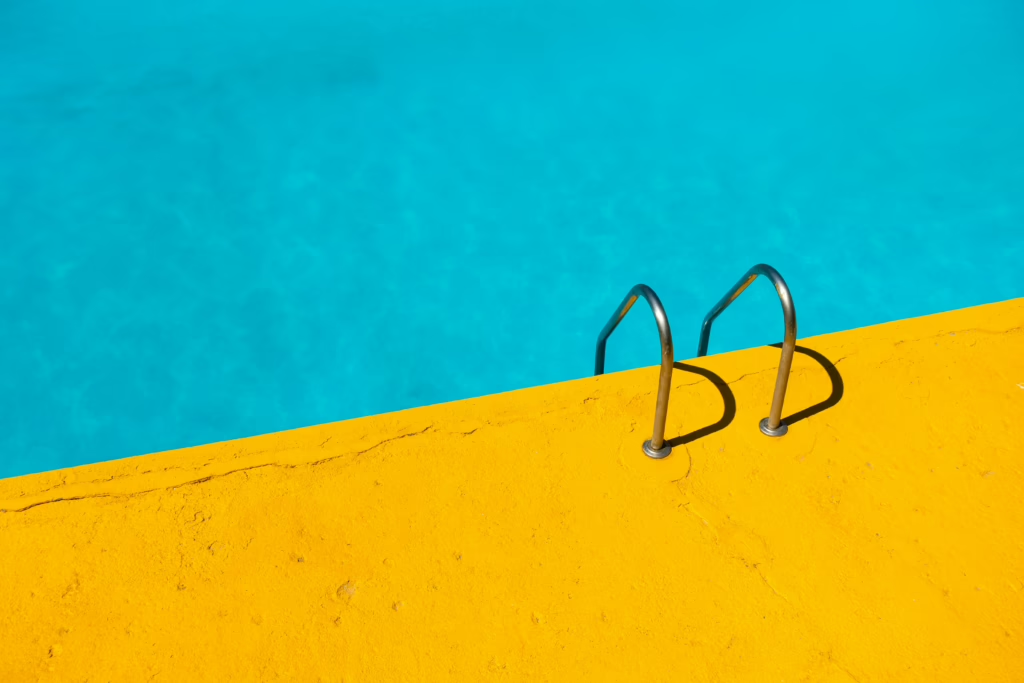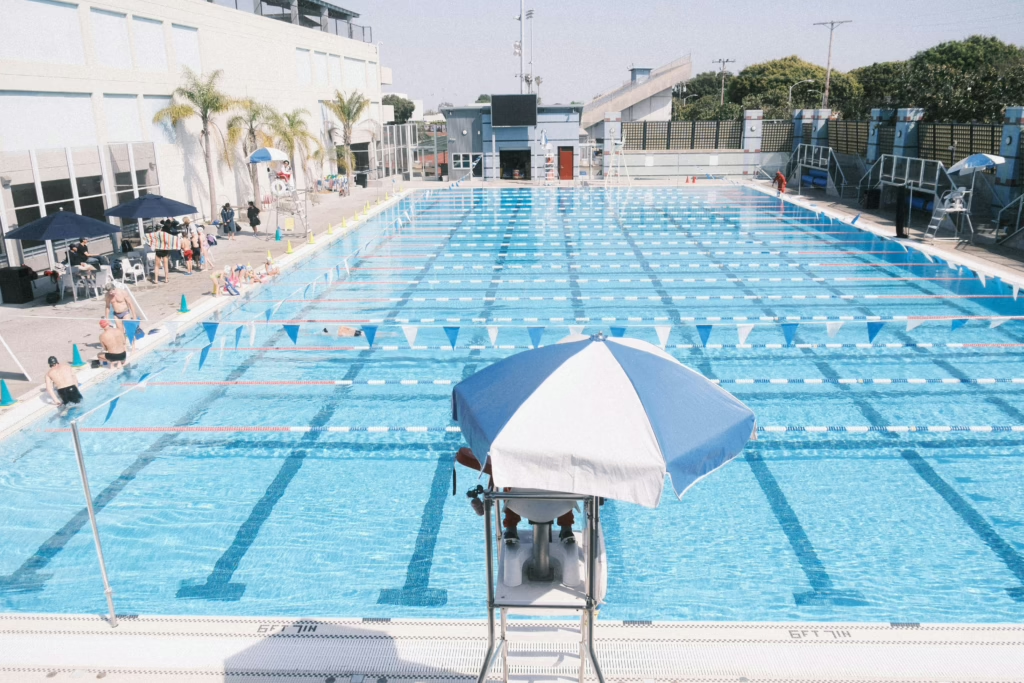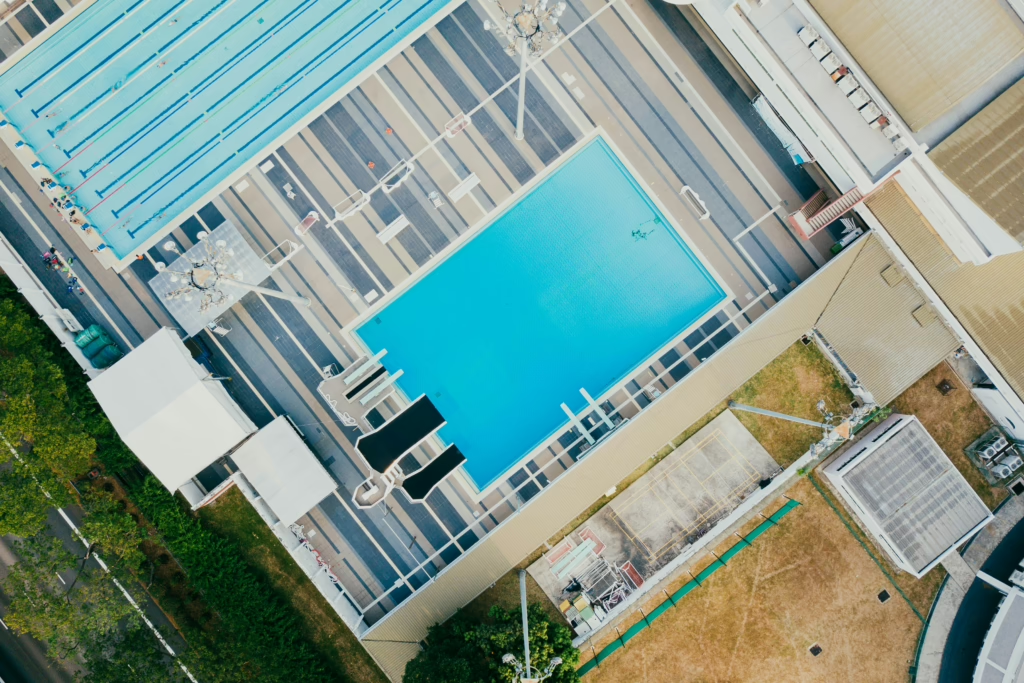Let’s be honest – there’s nothing worse than inviting friends over for a pool day only to discover your water’s turned green overnight. I’ve been there, and it’s not fun explaining why your “refreshing oasis” looks more like a swamp. Here in San Diego, where we’re blessed with sunshine practically year-round, our pools aren’t just occasional summer luxuries—they become extensions of our living spaces. But keeping that water crystal clear? That’s a whole other story.
If you’ve found yourself googling “pool cleaning near me” after a particularly busy week (or three) of neglecting your pool, you’re not alone. Finding someone reliable to take this chore off your hands can be a game-changer. I remember the relief when I finally found a service that showed up when they said they would and actually knew what they were doing. The right pool service doesn’t just skim leaves—they become the guardians of your backyard paradise, handling everything from mysterious pH problems to saving you from that embarrassing green water situation.
Whether you’ve just moved into a home with a pool or you’re tired of playing amateur chemist every weekend, understanding what professional pool maintenance really involves will help you make smart choices. Let’s walk through what you should expect, what questions to ask, and how to find a service that treats your pool like it’s their own.
Why Weekly Pool Cleaning is Essential
1. The San Diego Pool Problem
Our perfect San Diego weather comes with a catch for pool owners. That constant sunshine we love? It’s basically cooking off your chlorine every single day. And those warm temperatures create what I like to call “algae heaven.” One week of neglect during summer can turn your pool from crystal clear to science experiment gone wrong. Weekly cleaning isn’t just about aesthetics—it’s preventing small issues from becoming weekend-ruining problems.
2. The “Is It Safe to Swim?” Question
Remember that time your friend’s kid got an ear infection after swimming, and everyone silently wondered if it was from the pool? Nobody wants to be that pool owner. Regular professional maintenance means you’ll never have to wonder if your water is actually safe. Your pool should be your family’s happy place, not a source of mystery rashes or burning eyes that your guests are too polite to mention.
3. Protecting Your Wallet
Let me tell you about my neighbor who thought skipping regular maintenance would save money. Three years later, he was replacing his pool pump ($800), resurfacing early ($8,000), and buying a new heater ($3,500)—all preventable with regular $150/month maintenance. Sometimes the most expensive pool service is actually no service at all. Think of weekly cleaning as insurance for one of your home’s biggest investments.
What Actually Happens During Weekly Pool Cleaning
1. The Surface Sweep
Most visible is what I call “the satisfying part”—when technicians skim off leaves, bugs, and that mysterious film that appears overnight. This prevents all that stuff from sinking, staining, or clogging up your system. It’s the pool equivalent of making your bed—the bare minimum that makes everything look presentable.
2. The Deep Work
But here’s what separates professionals from the neighbor kid you hired—they’re actually hunting for problems in places you don’t see. They’re scrubbing those corners where algae starts its silent takeover, vacuuming debris you don’t even notice, and checking the tile line where that stubborn calcium builds up. It’s like the difference between tidying up for guests versus actually deep cleaning your house.
3. The “Behind the Scenes” Stuff
Your filter and pump are the unsung heroes of your pool—when they’re working right, you never think about them. When they fail? Pool disaster. Good technicians empty those hair-clogged baskets (gross but necessary), backwash filters when needed, and make sure water is actually flowing properly through your system. This is the stuff most DIYers forget until something breaks.
4. The Chemistry Magic
Pool chemistry isn’t just dropping in chlorine tablets and hoping for the best (though that’s exactly what I did for my first year of pool ownership). Professionals are balancing multiple factors—pH, alkalinity, calcium hardness, cyanuric acid levels—that affect everything from equipment corrosion to skin irritation. It’s like baking, where being “close enough” can ruin the whole recipe.
5. The “Catch It Early” Check
Every week, good technicians give your equipment a quick once-over. They’re listening for unusual pump noises, checking for small leaks, and noticing things like “that heater flame doesn’t look right.” These quick checks often catch $200 problems before they become $2,000 emergencies. It’s the pool equivalent of noticing that weird sound in your car before the engine falls out.
Why DIY Pool Care Usually Fails
1. The Knowledge Gap
Let’s be real—most of us became pool owners without passing any “pool chemistry” exam. Professional technicians understand the invisible science happening in your water. When I tried DIY maintenance, I was constantly googling things like “why is my pool cloudy but chemicals test fine?” A pro would have immediately known the filter needed cleaning—something that took me three weeks and lots of wasted chemicals to figure out.
2. The Time Reality
In theory, maintaining your own pool takes “just 30 minutes a week.” In reality, it’s more like 2-4 hours when you count shopping for supplies, troubleshooting problems, and dealing with seasonal issues. That’s 100+ hours annually you could spend actually enjoying your pool instead of working on it. Time is the one resource you can’t buy more of.
3. The Consistency Factor
Let’s be honest—life gets busy. You go on vacation, work gets crazy, or maybe you just don’t feel like testing water when it’s 102° outside. Professional services don’t take weeks off or procrastinate on maintenance. My pool’s worst algae bloom happened right after a two-week business trip during summer. Coincidence? Definitely not.
4. The False Economy
I calculated that my DIY approach was saving about $100/month compared to professional service. But I was spending $80 on chemicals (often the wrong ones), my equipment was wearing out faster from improper balancing, and I was still dealing with occasional issues requiring professional help anyway. Sometimes cheaper ends up being more expensive in the long run.
Finding the Right Pool Service
The Local Advantage
Your pool faces specific regional challenges. A company that works primarily in Arizona will have different approaches than one experienced with San Diego’s coastal conditions. When interviewing services, ask how long they’ve worked in your specific area and what common issues they see in pools like yours. Local knowledge saves you from being the guinea pig.
The “What’s Actually Included?” Question
Some “full-service” pool companies actually just skim and go, while others provide true comprehensive care. Get clear about exactly what’s included—chemical testing and adjustment? Filter cleaning? Basic repairs? Remember my nightmare with a service that claimed “full chemical balancing” but actually only handled chlorine levels—my pool equipment suffered the consequences.
The Customization Conversation
Every pool is unique—yours might be under trees (hello, leaf problems), heavily used by kids, heated year-round, or have special features like saltwater systems. The best services adapt their approach to your specific situation rather than following the same checklist for every pool. Be wary of companies that don’t ask detailed questions about your pool’s specific situation.
The Price Transparency Talk
Quality pool service in San Diego typically costs $120-200 monthly, depending on your pool’s size and features. Be suspicious of quotes significantly below this range—they’re often teaser rates that don’t include essential services. The company I eventually settled on wasn’t the cheapest, but their quote included everything with no surprises, which has saved me money and headaches in the long run.
The Communication Style
Some companies provide detailed reports after each visit; others send quick texts or nothing at all. Do you want to know every chemical adjustment they make, or do you just want confirmation they showed up? Find a service whose communication style matches yours. I personally appreciate my tech sending a quick photo after service—it’s minimal effort but gives me peace of mind.
What Makes a Pool Service Worth Keeping
1. The Earth-Friendly Approach
Modern pool care isn’t about dumping in maximum chemicals. The best services use minimal, targeted treatments that are better for the environment, gentler on swimmers, and actually more effective. Ask potential companies about their approach to minimizing chemical usage while maintaining water quality. Your lungs, skin, and local watershed will thank you.
2. The “They Actually Show Up” Factor
It sounds basic, but reliability is shockingly rare in pool services. Do they arrive when promised? Follow the same thorough process every time? Have a system to ensure nothing gets missed? After cycling through three services that would randomly skip weeks without notice, finding one that consistently shows up as promised felt like winning the lottery.
3. The Prevention Mindset
Average pool techs fix problems. Great ones prevent them. They’re thinking about upcoming pollen season before you are, preparing your pool for those three months you won’t be swimming, and noticing subtle changes before they become issues. My current service adjusted my chemicals before a heatwave they knew was coming—something I wouldn’t have thought to do myself.
4. The Tech Advantage
The pool industry is modernizing, and better companies use technology to improve your experience. Water testing apps that provide historical data, online scheduling systems, automated service notifications—these aren’t just conveniences; they help ensure consistent care. My service’s digital reports let me track chemical trends over time, which helped identify that my water source had changed slightly.
5. The Warranty Protector
Most people don’t realize that many pool equipment warranties require proof of professional maintenance. When my neighbor’s $1,200 pump failed under warranty but he couldn’t prove professional service, guess who paid full price for the replacement? (Hint: not the manufacturer.) Regular professional maintenance documentation can quite literally pay for itself with one warranty claim.
Getting Started Is Easier Than You Think
The First Date
Good services start with a thorough assessment—testing your water, examining equipment, and understanding your specific concerns. This isn’t just for their benefit; it establishes a baseline so you both know where you’re starting from. Just like a doctor wouldn’t prescribe medicine without an exam, a pool shouldn’t get a treatment plan without proper evaluation.
Finding Your Rhythm
Pool services typically offer weekly, bi-weekly, or monthly options. For most San Diego pools, weekly is ideal—our climate simply demands it—but your specific situation might vary. A good company will help determine the right frequency rather than just selling you their most expensive option. They should work around your schedule, not the other way around.
The Clean Slate Approach
If you’re switching from DIY or another service, expect a possible “reset period” where they correct existing issues. My pool needed three weeks of adjustments to recover from my well-intentioned but chemically questionable DIY approach. Be patient during this initial phase; it’s like starting a new medication—the full benefits take time to appear.
The Open Line
Great pool services establish clear communication from day one—how to reach them with questions, what to do in emergencies, and how they’ll keep you informed. My service created a shared digital folder with all my equipment information, warranty dates, and service history. This simple step showed me they were thinking long-term about my pool’s care.
The 5-Minute Promise
Despite what you might fear, getting started with professional service isn’t complicated. Most good companies can complete your initial consultation and setup in about 5 minutes on the phone, then schedule your assessment. It’s probably less time than you’ll spend reading online pool advice this month! And unlike my three-week deep-dive into pool chemistry videos, these 5 minutes actually solve the problem.
Frequently Asked Questions:
1. How much does weekly pool cleaning service cost?
In San Diego, expect to pay between $120-200 monthly for quality weekly service. This typically includes all routine chemicals, testing, cleaning, and basic maintenance. And before you think “that seems high,” calculate what you’re spending on chemicals, test kits, and equipment wear—not to mention your time. Most of my friends who switched to professional service were surprised to find the cost difference smaller than expected.
2. Can I just clean my pool monthly instead of weekly?
You could also only brush your teeth monthly, but I wouldn’t recommend either. In our climate, pools can develop serious problems in just 7-10 days. By the time monthly service arrives, they’re often dealing with problems that require additional treatments, chemicals, and time—ultimately costing more than weekly maintenance would have. Trust me, I tried the “every other week” approach for a summer. Never again.
3. What qualifications should I look for in a pool technician?
Look for certifications from organizations like APSP (Association of Pool & Spa Professionals) or CPO (Certified Pool Operator), which indicate specialized training. But equally important is experience—specifically with pools like yours. When interviewing services, I asked how many pools they maintain with similar features to mine. Their detailed, confident answer told me more than any certification could.
4. Do I need to be home during pool service?
Generally no—most services just need access to your pool area and equipment. This is actually one of the biggest benefits of professional service; your pool gets maintained whether you’re home, busy, or on vacation. I’ve gone months without seeing my pool technician in person, but my pool stays pristine regardless. Just make sure to clearly communicate any access instructions or security concerns.
5. What happens when it rains?
Good question! Despite San Diego’s sunny reputation, we do get rain. Most services will still come on rainy days to check chemical balance (rainfall affects pH), clean debris (storms bring more), and ensure equipment is functioning properly. They might abbreviate certain tasks like skimming, but the essential maintenance still happens. My service actually prioritizes post-rain visits because that’s when pools need the most help.
Final Thoughts
I remember the day I stopped worrying about my pool—it was about three weeks after hiring a professional service. I suddenly realized I hadn’t thought about water chemistry, checked the skimmer basket, or worried whether it was safe to swim in weeks. That mental freedom alone was worth every penny.
If you’re still googling “pool cleaning near me” after struggling with DIY maintenance or disappointing services, PoolLogic offers the kind of reliable, thorough care that lets you actually enjoy your pool instead of working on it. Their 5-minute setup process makes getting started painless, with no complicated contracts or confusing terminology—just straightforward pool care from people who genuinely know what they’re doing.
Ready to stop being a weekend pool chemist and start being a pool user? Take that 5 minutes to set up professional service. Your future self—the one hosting stress-free pool parties without checking chlorine levels first—will thank you for it.



